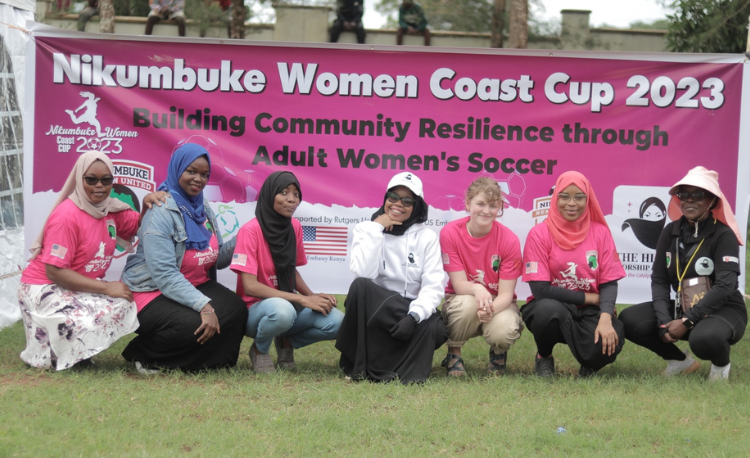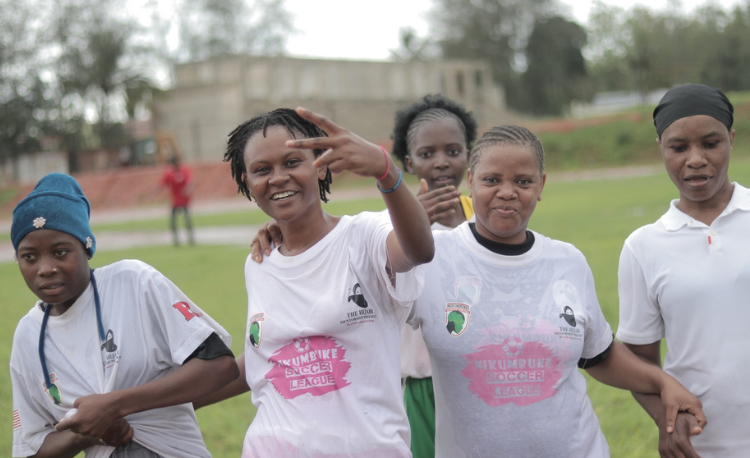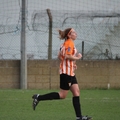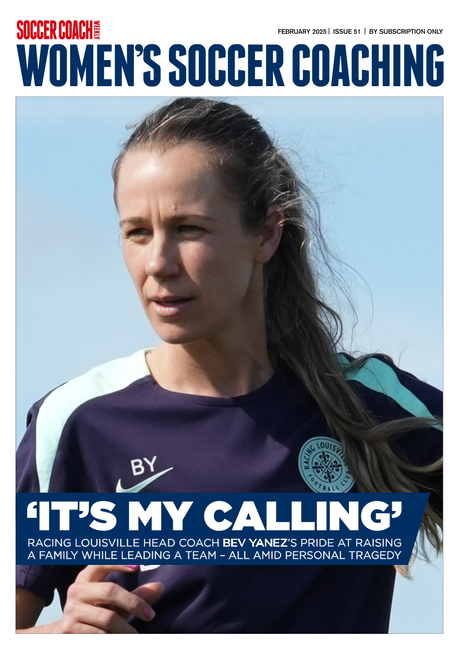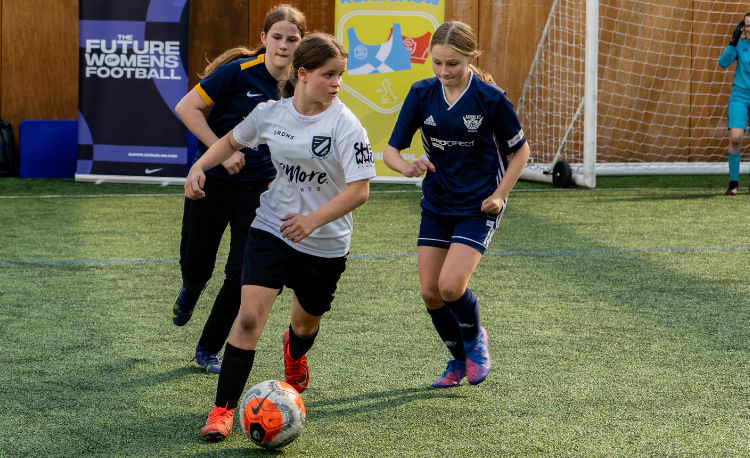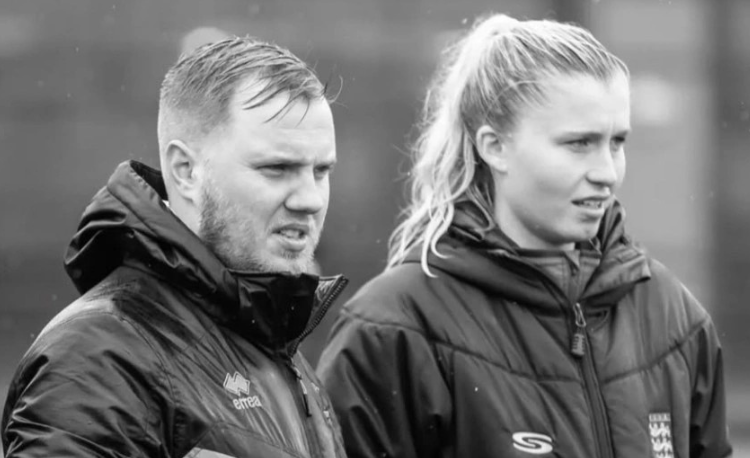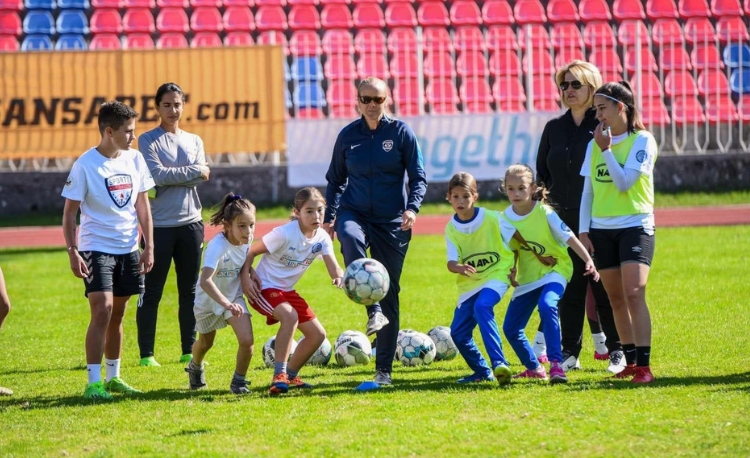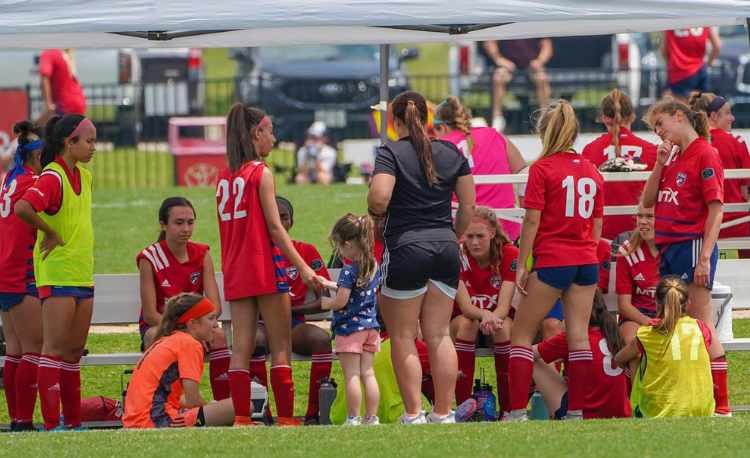You are viewing
1 of your 3 free articles
The Hijabi Mentorship Program: Creating leaders and changing perceptions
The Hijabi Mentorship Program is working to overturn gender stereotypes and changing the lives of dozens of women in the process.
In some areas of Kenya, communities continue to battle deep-rooted gender stereotypes and gender-based violence.
The Hijabi Mentorship Program – under the umbrella of the Nikumbuke soccer program – is working to address these issues, by providing women with opportunities to play soccer, become leaders and grow in confidence, while influencing the wider community.
Hannah Duncan spoke with Nimah N’zani Kassim Zani, founder and director of the Hijabi Mentorship Programme, to find out more...
WSC: Tell us a bit about the wider Nikumbuke program and the Hijabi Mentorship Program...
NNKZ: The Nikumbuke soccer program was born out of a broader vision, to empower women in under-served communities through sports.
It began as a response to the lack of recreational and social opportunities for women in rural areas, especially when it came to engaging in sports.
The idea behind it was simple, but powerful: to use soccer as a tool for empowering women, promoting gender equality, and providing a platform for social change.
Through soccer, we aim to break cultural barriers, build confidence, and foster leadership skills among women, all while promoting their physical and mental health.
Nikumbuke Soccer is undertaken by several organisations, under the Nikumbuke Women United umbrella: the Hijabi Mentorship Program in Kwale county, the Nikumbuke Project in Lunga Lunga, Amani from Kibra in Nairobi, and Hitaji from Migori county and Kirinyaga.
WSC: What is the status of female soccer within the communities you work in?
NNKZ: Being a conservative community, female soccer is still growing here. While men’s teams have long been established, women’s teams are relatively new and less numerous.
In some communities, we may have one or two female soccer teams, compared to multiple male teams. However, the interest is growing rapidly, and more women are joining the sport each year.
Opportunities for female players and coaches remain limited, but with the Hijabi Mentorship Program, we are creating more avenues for women to not only play, but also take on leadership roles as coaches and team managers.
We are also working on providing training and resources to ensure that female players have equal access to the facilities and opportunities that male players enjoy.
WSC: Why is it so important for these communities to have opportunities for female players?
NNKZ: It’s crucial, because it challenges deep-rooted gender stereotypes and promotes gender equality in spaces where women are traditionally excluded.
In these communities, sports are often seen as a male domain – but, by providing opportunities for women to participate, we are shifting perceptions and demonstrating that women are equally capable, and deserving of recognition in all aspects of life, including sports.
Moreover, sports offer a safe space for women to build confidence, foster teamwork, and develop leadership skills that can be applied both on and off the field.
WSC: Who is the Hijabi Mentorship Program aimed at and how have you gone about reaching these people?
NNKZ: The program is primarily aimed at older women in marginalised and rural communities, who have limited access to organised sports or leadership opportunities.
We have reached these women through women’s groups. By partnering with local leaders and using a grassroots approach, we have been able to build trust within the communities, ensuring the women feel supported and encouraged to participate.
Additionally, we’ve recently had young mothers within the project, helping to build a more inclusive and supportive environment for female athletes.
WSC: What does the programme involve?
NNKZ: It involves regular soccer training sessions, tournaments, leadership workshops, finance literacy, and health and wellness education, including sexual reproductive health and rights, and gender-based violence (GBV) conversations.
Women who take part in the program can expect to receive training from qualified coaches and health workers, participate in local and regional tournaments, and gain valuable life skills through the mentorship and empowerment sessions we offer.
Beyond soccer, the program also focuses on promoting mental health, self-esteem, and leadership, equipping women with the tools they need to thrive both on the field and in their personal lives.
Participants can also expect to form strong bonds with other women in their community, creating a support system that extends far beyond the soccer field.
WSC: How many women have been involved so far and what has the feedback been like?
NNKZ: Since the launch of the program, 132 women have actively participated in the soccer training and tournaments.
The feedback has been overwhelmingly positive, with many women expressing gratitude for the opportunity to engage in sports, from which they had previously been excluded.
Participants have noted improvements in their physical health, mental wellbeing and self-confidence. They also highlight the sense of community and solidarity that the program has fostered among them.
Many women have shared how the program has not only changed their lives, but also how it has positively impacted their families and communities.
WSC: What are the main success stories from the program?
NNKZ: One of our standout success stories is Amina, a young mother and GBV survivor, who joined the Hijabi Mentorship Program with little confidence, and lots of trauma.
Through participation in the program, she not only became one of the top players on her team, but also took on a leadership role as a coach for younger girls in her community.
Amina has since gone on to become a vocal advocate for women’s rights in her village, using her platform to speak about the importance of female participation in sports and leadership roles.
We have also had women who, after joining the program, pursued further education or leadership positions in their communities, something they attribute to the confidence they gained.
WSC: What impact has the program had on other societal factors in the communities, such as views of females in sport?
NNKZ: The program has had a significant impact on shifting societal perceptions of women in sport.
Initially, there was resistance from some community members, who believed that sports were not meant for women.
However, as the program has grown, and female players have shown their talent, determination and leadership, the attitudes have started to change.
We’ve seen an increase in support from male allies, and local leaders have become more vocal in their advocacy for gender equality in sports.
This change in perception has also spilled over into other areas of society, with women becoming more visible in leadership roles within their communities and more confident in asserting their rights.
WSC: What are the future plans for the program?
NNKZ: Looking ahead, we plan to expand the program to reach even more women across different parts of Kwale County.
Our goal is to establish soccer leagues in several rural areas, and to create opportunities for women to participate in national-level tournaments.
We also aim to develop a more structured coaching programme that will train women to become certified coaches and referees, further promoting female leadership in sports.
Additionally, we plan to continue integrating life skills and leadership workshops into the programme, ensuring that participants not only grow as athletes but also as empowered leaders in their communities.
Related Files
Newsletter Sign Up
Newsletter Sign Up
Discover the simple way to become a more effective, more successful soccer coach
In a recent survey 89% of subscribers said Women's Soccer Coaching makes them more confident, 91% said Women's Soccer Coaching makes them a more effective coach and 93% said Women's Soccer Coaching makes them more inspired.
*includes 3 coaching manuals
Get Inspired
All the latest techniques and approaches
Women's Soccer Coaching offers proven and easy to use soccer drills, coaching sessions, practice plans, small-sided games, warm-ups, training tips and advice.
We've been at the cutting edge of soccer coaching since we launched Soccer Coach Weekly in 2007, creating resources for the grassroots youth coach, following best practice from around the world and insights from the professional game.
